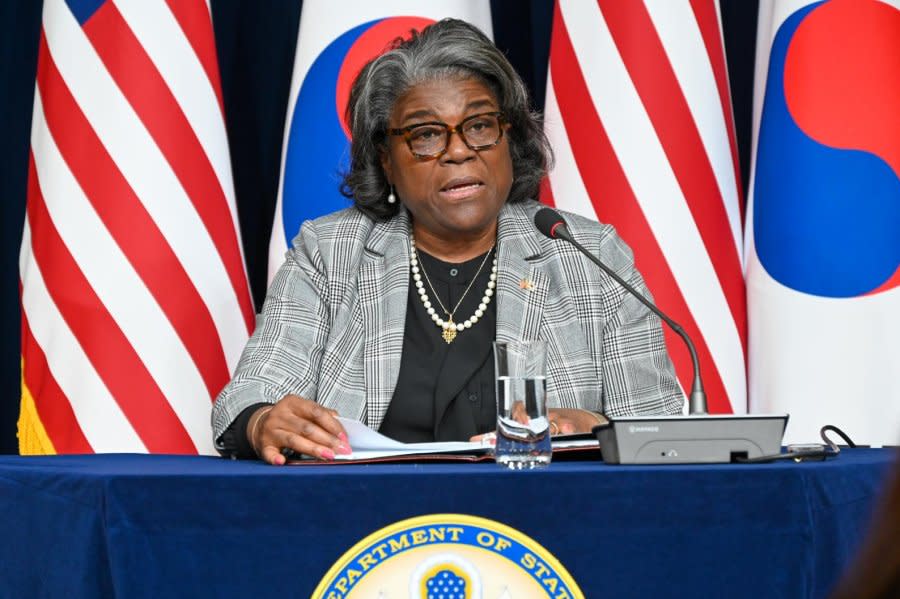UN envoy: U.S., allies seeking new ways to monitor sanctions on North Korea

SEOUL, April 17 (UPI) -- The United States is working on options "both inside and outside the U.N. system" to monitor sanctions against North Korea, Washington's top envoy to the United Nations said Wednesday during a visit to Seoul.
U.S. Ambassador to the United Nations Linda Thomas-Greenfield made the remark after Russia vetoed a resolution last month to extend the U.N. Security Council's sanction-monitoring Panel of Experts. She is on an Asia trip that includes stops in South Korea and Japan.
"I look forward to engaging with both the Republic of Korea and Japan, and like-minded [countries] as well, on trying to develop options both inside the U.N. as well as outside of the U.N.," Thomas-Greenfield said.
"The point here is that we cannot allow the work that the Panel of Experts were doing to collapse," she said. "We have to continue to keep eyes on and report on the illegal activities of the DPRK and efforts to break the sanctions that have been put in place."
The Democratic People's Republic of Korea is the official name of North Korea.
The Security Council imposed sanctions on North Korea in 2006 after Pyongyang's first nuclear test and has added several rounds since. The Panel of Experts was established in 2009 to help monitor compliance. Its mandate had been renewed annually until the vote last month.
Russia's veto came after the panel released a report citing numerous sanctions violations by North Korea, including an estimated $3 billion generated from cyberattacks used to fund the regime's illicit weapons program.
The panel also said it was investigating numerous accounts of arms transfers between Russia and North Korea.
South Korean defense officials said recently that the North has shipped around 7,000 containers of munitions to Russia for its war against Ukraine. Moscow, meanwhile, is widely believed to be sharing advanced weapons technology and delivering shipments of oil to help Pyongyang evade sanctions.
Thomas-Greenfield said that Russia and China -- which abstained on the Panel of Experts vote and has sided with Moscow in blocking other Security Council actions against North Korea -- would continue to try to impede sanctions monitoring efforts.
"Russia has already been breaking the sanctions regime," Thomas-Greenfield said. "They have, along with China, continued to protect the DPRK from being held accountable. And so I don't expect that they will cooperate or agree with any efforts that we make to find another path, but that is not going to stop us from finding them."
During her four-day visit to South Korea, Thomas-Greenfield met with officials including Foreign Minister Cho Tae-yul and President Yoon Suk Yeol. On Tuesday, the envoy visited the Demilitarized Zone that separates the two Koreas, where she called for Pyongyang to return to the negotiating table.
"We remain open to dialogue -- real, productive dialogue -- without preconditions," Thomas-Greenfield said. "All the DPRK has to do is say yes, and show up to the table in good faith."
Thomas-Greenfield is scheduled to depart for Japan later on Wednesday to continue her two-country trip.

